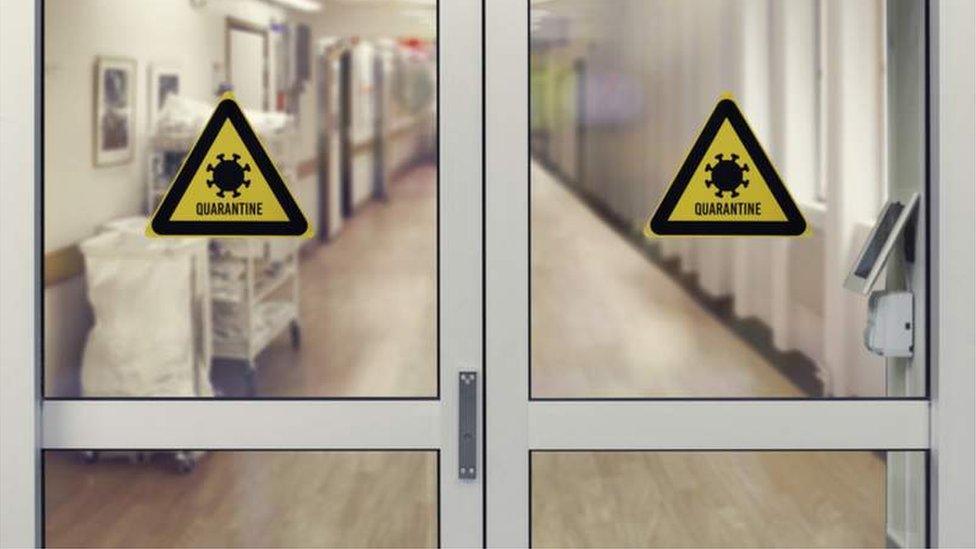The battle to reduce the waiting-time backlog
- Published
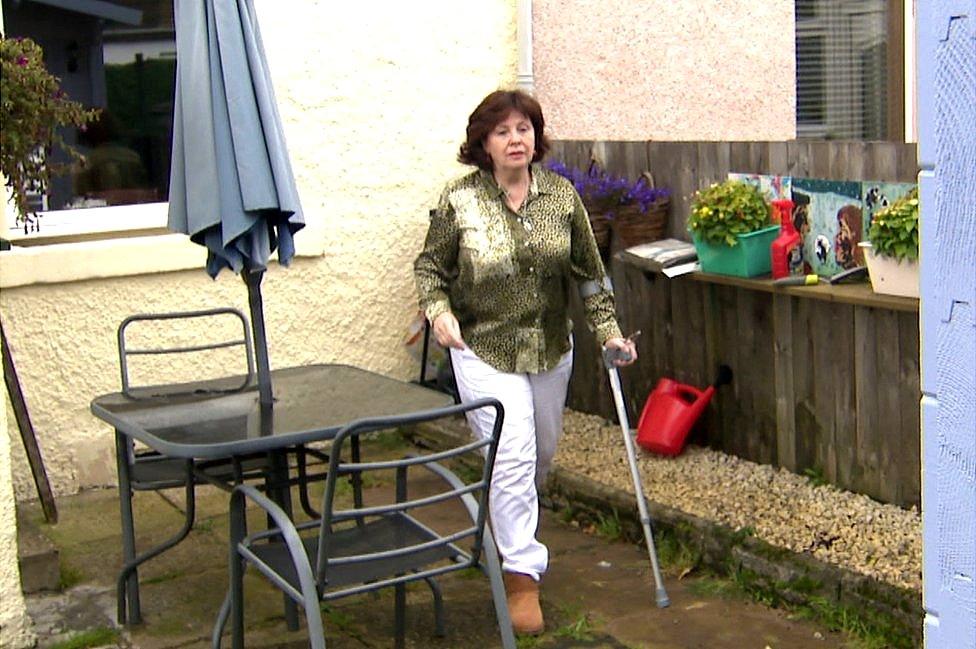
Patricia Collatin was operated on in the morning and by teatime she was home with a new hip
Patricia Collatin has been waiting for a new hip since spring 2019.
She should have had her replacement operation the week the country locked down in March.
But instead, like thousands of other people who needed elective surgery, she went back onto the waiting list and waited five more months to try again.
The Covid backlog is arguably as big a priority for Scotland's NHS as the accelerating rise in the transmission of the virus.
Scotland's health boards have begun to restart routine treatments, but figures for August show that only half the normal number of planned operations are taking place., external
Planned operations fell from 28,036 carried out in August 2019 to 13,831 in August 2020.
Ms Collatin, from Yoker in West Dunbartonshire, is one of the first patients on a scheme to fast-track some routine surgeries.
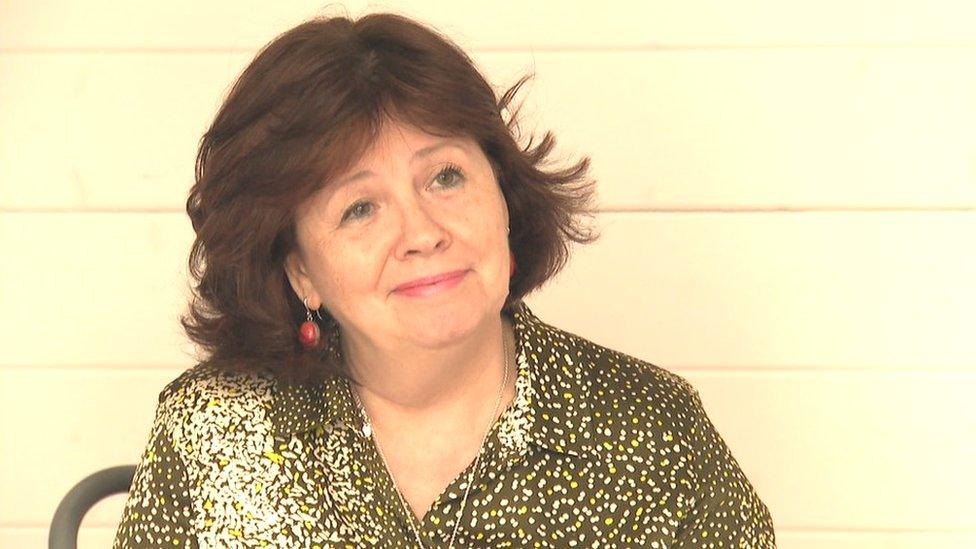
Patricia Collatin was supposed to have hip replacement surgery the week the country locked down
She is a "day zero" patient - who was in and out of hospital in less than a day.
She said: "I went in early in the morning and was operated on at about 09:00. I was taken to the recovery ward then back to my room where the nurses checked on me constantly.
"The option was always there to stay if I had to but I had a lunch, we sorted the medication and I was up pretty quickly on my feet.
"There was no struggle or discomfort. I walked out on crutches and was home in time for tea."
The combination of local anaesthetic, patient education and "prehabilitation" with physiotherapy and occupational therapy on the day of surgery means suitable patients can safely go home a few hours after surgery - no matter where they live.

Consultant orthopaedic surgeon Christopher Gee performs the one-day hip replacement surgeries
Ms Collatin's operation was carried out at the Golden Jubilee Hospital, which is leading the post-Covid charge to ease waiting lists at health boards across the country.
The hospital does not take Covid patients and is set up to almost pre-pandemic service levels.
Orthopaedic surgeon Christopher Gee says it is now full steam ahead.
"Now we are really back to where we were before - we had five elective orthopaedic theatres before lockdown and that's what we have now," he said.
"The number of cases we are doing per list is essentially the same. We are doing near enough 4,000 joint replacements per year and are one of the largest centres for arthroplasty in Europe."
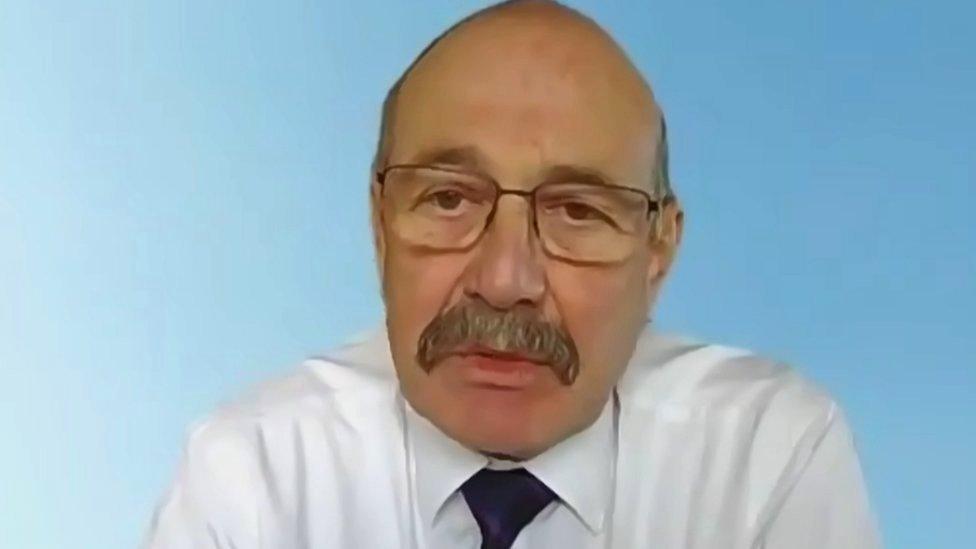
Prof Colin Howie believes at least 100,000 elective surgeries have been missed since the pandemic
However, there are warnings that waiting lists will be long for a very long time.
Leading orthopaedic expert Prof Colin Howie, from the University of Edinburgh, says Scottish patients face an "indefinite wait" for planned operations in the wake of the Covid lockdown.
He says at least 100,000 patients have missed elective surgery this year.
He told BBC Scotland the backlog includes thousands of patients who do not show up on waiting lists, because they have not been put into the system yet.
"The likelihood is many more patients are waiting," he said. "At the moment the wait is indefinite because we don't know what facilities we will have available, we are already operating on reduced capacity and even before lockdown the waiting lists were increasing."
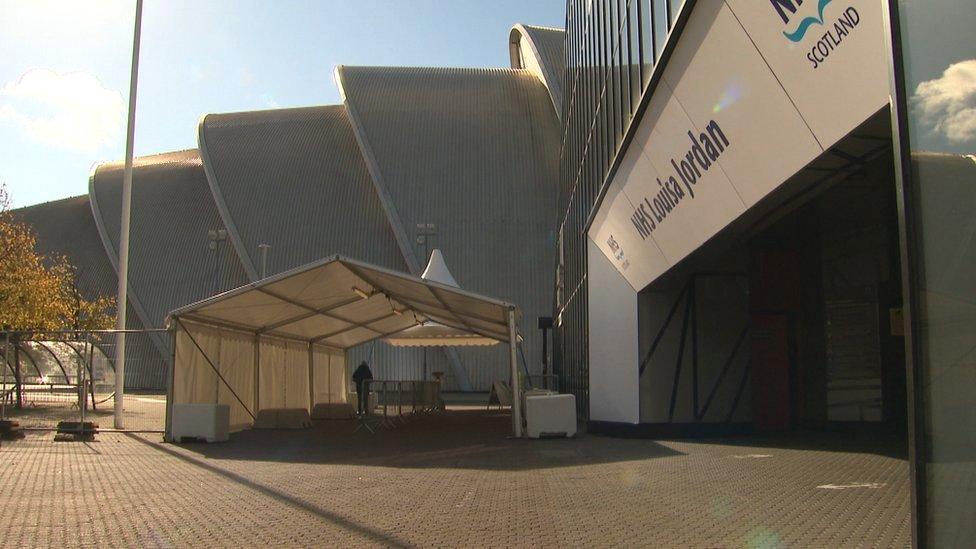
The NHS Louisa Jordan is providing vital scans and clinics to try to reduce waiting times
As stricter restrictions come into force across Scotland on Friday, another surgeon has warned of significant waiting lists for cancer surgery, potentially leading to loss of life in the coming months.
Prof Michael Griffin, president of the Royal College of Surgeons of Edinburgh, believes there could be a deluge of cancer patients who require procedures.
He says these people are "invisible" to the health service as they have yet to be diagnosed following months of cancer screening services being halted and patients not presenting with symptoms.
NHS Louisa Jordan
The Louisa Jordan hospital at Glasgow's SECC, which was set up especially to deal with the pandemic, has not been needed for Covid patients so far but it is now being put to use providing CT scans to help get through the backlog of those waiting for a diagnosis.
It is carrying out an extra 1,000 scans and more than 1,600 X-rays a month for the NHS.
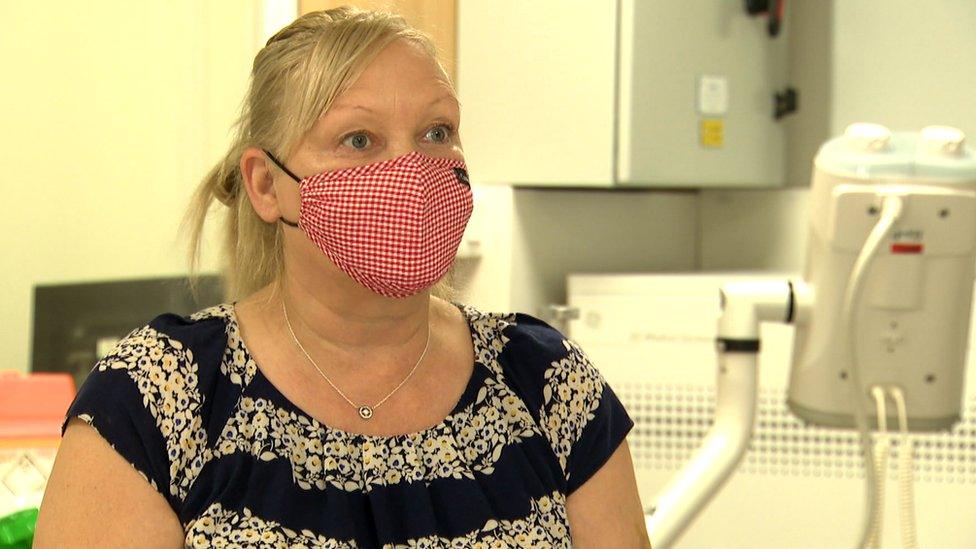
Veronica Dorricot believes she would have had a wait of months if the Louisa Jordan was not available to her
Its two CT scanners and two X-ray units are providing extra capacity to health boards across the country.
Jean Wright, the diagnostic lead at NHS Louisa Jordan, said: "It's made a huge difference because in clinics, capacity is reduced due to additional cleaning measures, physical distancing and having to carefully manage patient flows through sometimes very small spaces.
"This site has vast space and can allow us to manage flow very safely and see more patients through the scanners."
Veronica Dorricot is one of the first patients to benefit from the Louisa Jordan's new role. She feared her painful sinus issues would have to wait, but an urgent referral from an ENT consultant saw her receive a CT scan within three weeks.
She said: "If this hadn't been here I would probably be here in another six months because we don't know how Covid is affecting things in hospitals and clinic.
"Within two weeks I got a call from Louisa Jordan and I am here within a week. That is fantastic."
'Commitment to resuming services'
The Scottish government said the health service in Scotland was placed on an emergency footing to tackle the pandemic, which meant scaling back all non-urgent elective procedures.
But it was made clear to NHS boards that urgent, maternity and vital cancer services should remain as usual.
A spokesman said: "The number of planned operations has increased since July, demonstrating our commitment to resuming services as quickly and safely as possible, while patients who need urgent care, including cancer treatment, continue to be prioritised.
"In announcing temporary measures to stop the spread of the virus on 7 October, the first minister was clear that health boards should continue with the remobilisation of health services."
- Published2 June 2020
